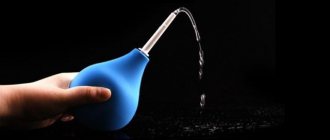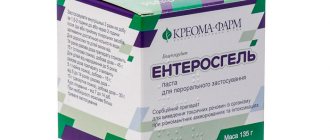A person suffering from alcohol addiction does not always consider himself sick. He continues to drink alcohol, despite all the attempts of his loved ones to stop drinking. Often, relatives take the simple route - they quietly add a drug to alcohol that causes a persistent aversion to alcohol.
This is a very controversial way of fighting, and if the patient notices this fact, conflict cannot be avoided. Let's look at how you can induce an aversion to alcohol at home.
Content:
- How do pharmaceutical drugs that cause alcohol intolerance work?
- Drugs that cause aversion to alcohol
- Contraindications
- Preparing to Coding
- Is it possible to take alcohol aversion medications on your own at home?
- Conditioned reflex therapy (CRT)
The search for remedies that cause intolerance to alcoholic beverages has been undertaken since ancient times. To make a person dislike alcohol, he was given a variety of plants, decoctions, infusions, even minerals and dried animal parts. Empirical selection had its effect, but the disease almost always turned out to be stronger if the alcohol addict was not committed to sobriety. The modern scientific approach has made it possible to achieve significant success in the search for sensitizing agents (leading to incompatibility with ethanol). With the right intentions for a healthy life, medications for aversion to alcohol are very effective.
How do pharmaceutical drugs that cause alcohol intolerance work?
Almost all pharmaceutical drugs of prohibitive therapy block liver enzymes involved in the catabolism of alcohol molecules and intermediate products of its breakdown. Most of these substances are toxic. Accumulating in tissues, they cause poisoning. Any attempt to drink alcohol ends in the development of toxic syndrome. It manifests itself in a variety of dysfunctions of internal organs, the brain and peripheral nervous system, heart and blood vessels, liver, and gastrointestinal tract.
Most often the patient experiences:
- Fever and redness of the face.
- Sweating and hypersalivation (excessive salivation).
- Palpitations, shortness of breath.
- Nausea and cramps at the smell of ethanol, vomiting.
- Fibrillary muscle twitching, convulsions.
- A painful mental state accompanied by fears.
Patients do not drink because they know that alcohol is akin to a dangerous poison for them.
Drugs that cause aversion to alcohol
Almost all of them contain the active ingredient disulfiram. In Russia, Teturam was the anti-alcohol drug for a long period of time. It is prescribed to remove toxic toxic substances from the body and reduce cravings.
The medicine is contraindicated for:
- gastric and duodenal ulcers in the acute stage;
- cardiosclerosis;
- atherosclerosis of cerebral vessels;
- tuberculosis;
- renal and hepatic pathology;
- glaucoma;
- pregnancy;
- malignant tumor;
- epilepsy;
- hypertension stages 2 and 3.
Today, many alcohol aversion pills are sold in pharmacies without prescriptions:
- Noxal,
- Exoran,
- Refusal,
- counterpot,
- Antetan,
- Antabuse.
A good therapeutic effect is observed when taking Alcophobin, Cyaminade, Radotera, Stoptil, Aversan.
Coding drugs are designed to cause aversion to alcohol:
- Aquilong.
- SIT.
- MST.
- Esperal.
- Torpedo.
They are not sold without prescriptions. They are administered under the supervision of a narcologist.
Modern methods of sensitizing therapy include:
- Prescription of intramuscular coding injections.
- Use of intravenous injections for coding.
- Sewing implants into the space between muscles and subcutaneous fat
The effectiveness is due to both the biochemical effect and the psychotherapeutic influence of prohibitive therapy. The doctor instills in the patient a dislike for alcohol on a conscious and subconscious level. The psychotherapeutic effect lasts for a long time, providing a powerful craving-controlling effect.
Disulfiram
The drug, under the trade name Disulfiram, is produced by Polish and Chinese manufacturers and is intended for long-term treatment of alcohol-dependent individuals by subcutaneous or intramuscular implantation of tablets. The active ingredient of the drug of the same name diffuses into the circulatory system, exerting a constant effect on the body according to the following principle.
Under normal conditions, the chemical disulfiram has no noticeable effects on humans. When any amount of ethyl alcohol enters the body, which is perceived at the chemical level as a toxic substance, the natural mechanism of its destruction (splitting) is activated. Disulfiram stops this mechanism, leading to the concentration of an intermediate substance - acetaldehyde or acetaldehyde, which is a poison.
As a result, the body of the drunk person begins to be poisoned by the half-life product of the alcoholic drink. This is expressed in a complex of painful disorders of the body systems:
- From the cardiovascular system: vasodilation, decreased blood pressure, heart rhythm disturbances, heart pain and headaches.
- From the respiratory system: shortness of breath and respiratory failure.
- From the gastrointestinal tract: nausea, vomiting.
- From the nervous system: tremor, convulsions.
The combination of unpleasant and painful sensations creates negative emotional reinforcement for drinking alcohol in an alcohol-dependent person.
A conditioned reflex is formed, which makes a person feel that drinking alcohol has a detrimental effect on his health and can lead to death.
Indeed, when taking doses of alcohol over 100 ml during disulfiram therapy, acetaldehyde poisoning may be incompatible with life: it can cause thrombosis, heart attack, cerebral edema, coma and death.
Implantation of Disulfiram should be carried out no earlier than 12 hours after the last drink. For subcutaneous implantation, Disulfiram tablets are placed in a star-shaped pattern in the amount of 10 pieces at a distance of 4 cm from the incision. Implantation of this type is repeated after 8 months.
For intramuscular implantation, Disulfiram tablets are placed in a fan-shaped manner and are calculated in the amount of 5 tablets for 1 year or 10 tablets for 2 years of action.
Disulfiram has numerous side effects, so its use should be justified on the basis that the benefits will outweigh the harm. The following side effects may be noted:
- Hepatotoxicity: liver damage, hepatitis.
- Vegetative-vascular effects: headache, low blood pressure, fatigue, drowsiness, memory loss, sexual dysfunction.
- Psychological maladjustment: depression, psychosis.
- Allergic reactions, alopecia.
- Neurological disorders: polyneuritis.
Disulfiram should not be combined with certain medications, including those used to relieve withdrawal symptoms.
to contents ^
Contraindications
Treatment for alcoholism with the above drugs is possible only in the absence of the following contraindications:
- infectious diseases in the acute stage;
- oncology;
- exacerbation of mental illness;
- renal or liver failure;
- pregnancy and lactation;
- intoxication;
- allergy to the drug;
- abstinence.
If there are no contraindications, then you can sew in a torpedo without fear for your health.
What kind of pills are there to treat alcoholism?
Pills to relieve hangover symptoms have nothing to do with the treatment of chronic alcoholism. With this difficult-to-treat disease, they do more harm than good. After all, the quick elimination of hand tremors, headaches and painful nausea allows the alcoholic to take the next portion of alcohol without fear. What pharmacological drugs actually work:
- Tablets with naltrexone, which reduce cravings for vodka, wine, and beer. They block receptors that are sensitive to the hormones of happiness and joy - dopamine, serotonin. Now drinking alcohol does not bring pleasure to a person. To avoid the symptoms of a hangover, he decides to stop drinking.
- Drugs that avert alcohol. This is the most effective group of drugs used in the treatment of alcoholism. Taking pills leads to such a sharp deterioration in health that a person is simply afraid to drink a glass of vodka or a glass of wine.
Combining drugs for alcoholism of different clinical and pharmacological groups is strictly prohibited. They have such different mechanisms of action that when used simultaneously there is a high risk of side effects. In case of withdrawal syndrome, treatment is carried out with balanced vitamin and mineral complexes, effervescent aspirin tablets, sedatives, and nootropics. Antipsychotics, tranquilizers, and antiarrhythmic drugs make it easier
Preparing to Coding
At the start of the procedure, the patient’s blood should not contain ethanol. To do this, you should not drink alcohol for at least three days. To be sure of purity, you can undergo detoxification - blood purification using a dropper with saline solution. It will get rid of residual alcohol products.
Before choosing a drug and the method of its administration, a survey and examination of the patient must be done. The doctor finds out how long the person has been drinking, what drinks he prefers, their dosages, the duration of the binge, the presence of motivation for sobriety, and other points related to the disease. The desired encoding period is discussed in advance, and the complications that arise after drinking alcohol during encoding are discussed in detail. At the end of the consultation, the patient signs an agreement for the provision of services and a receipt stating that he assumes responsibility for compliance with medical instructions.
Another product that doesn't work
We also do not recommend the alcohol barrier drug. It has not undergone serious studies on its effectiveness. And its sellers are playing a dishonest game by publishing fictitious praise about the drug. The alcohol barrier consists of components that are good in themselves, which in combination interfere with each other’s action. Not to mention the fact that they are powerless against alcoholism in any case. Read our article for a detailed doctor’s commentary on the composition of the alcohol barrier.
This article was last updated: 07/17/2019
Didn't find what you were looking for?
Try using search
doctor or administrator.
Read the dictionary of terms.
Free Knowledge Guide
Subscribe to our newsletter. We will tell you how to drink and snack so as not to harm your health. The best advice from experts on a site that is read by more than 200,000 people every month. Stop ruining your health and join us!
Is it possible to take alcohol aversion medications on your own at home?
Relatives of people who drink often turn to a narcologist. They are interested in what to add to alcohol to make them disgusted with it. Doctors strongly advise against trying to rid a drinker of addiction without his consent. Experiments of this kind can end sadly and even tragically. A patient who uses any anti-alcohol drug in an uncontrolled manner risks complications, disability, and even death. Entrust the matter to the specialists.
In drug clinics, the method of intervention motivation is practiced, which provides a special way of convincing alcohol addicts of the need for treatment. No violent or threatening methods are used. Motivational psychotherapy is a gentle but persistent version of persuasion that produces a positive effect in 80% of cases.
What do narcologists advise?
In this regard, it is curious what professional narcologists and specialists with practical experience think about non-traditional, folk methods of treating alcoholism. They do not advise seeking such help. Here's how this point of view is argued:
- if the patient becomes aware that some substances have been added to his food and he contacts law enforcement agencies, the “cook” will face unpleasant meetings with the investigator, and perhaps even with the judge;
- the individual properties of the body can react differently to the same “supplement”: what helps one may cause irreparable harm to another;
- Almost the entire “gentleman’s kit” for anonymous treatment of alcoholics is selected with the goal of aversion to drinking alcohol. Doctors say that alcohol has a double face - physical and psychological dependence. In this case, aversion to alcoholic beverages is the cutting off of only one head of the “green serpent.” Therefore, the effect may not last long, and after it a relapse is possible.
There is another, less visible facet: often codependency develops among close people of an alcoholic, i.e. they also undergo certain changes in their own mental state and this must also be corrected by specialists.
Conditioned reflex therapy (CRT)
This type of treatment is based on a combined effect on humans. Currently, it is not used as often due to the distress experienced by patients.
The method provides:
- Using a drug that causes alcohol withdrawal.
- The use of psychomethods aimed at developing mental intolerance to any product containing ethanol.
As a result, the drug causes aversion to alcohol based on dual effects. The URT course is designed for several procedures, during which a persistent reflex of rejection of alcohol-containing drinks is formed. Sessions are most often held in a group format.
The technique includes:
- Use of a sensitizing drug.
- Creating a familiar environment for drinking: a table on which there are bottles of vodka, wine, or other alcoholic beverages.
- Pour the usual dose into glasses.
- A conversation between a psychotherapist and clients, gradually turning into an imperative instillation of hostility towards the sight and smell of ethanol.
- The occurrence of a vomiting reaction and poor health.
- Consolidation of a negative feeling.
The session is repeated 2-3 days in a row, then the procedure is carried out after 1-2 days. To consolidate the effect, 8-10 sessions are enough. A persistent rejection reflex persists for several months. Then you should repeat the course of treatment or consolidate the results with another method of therapy.
Side effects
Disulfiram and other tablets based on it effectively help fight addiction, but we must not forget that any medication can have side effects.
Experts name several signs that you should pay special attention to. These include:
- polyneuritis of the extremities;
- pinched optic nerve;
- allergic rashes;
- skin itching;
- metallic taste in the mouth.
All of these signs are considered side effects from the use of Disulfiram. There is no reason to panic. These conditions are not life-threatening, and the benefits of the medicine far outweigh all possible risks. To ensure that the prescribed drug is easily tolerated, it is best to use it under the constant supervision of a specialist.
Literature:
- How to get rid of addiction to alcohol / Yu.L. Muchnik, M.S. Pruss, L.L. Kelin, V.A. Solovyova. - St. Petersburg. : Neva; M.: OLMA-PRESS, 2003 (M.: PF Red Proletarian). — 127 p.
- Lectures on pharmacology for doctors and pharmacists: a textbook for medical universities / A. I. Vengerovsky. — [3rd ed., revised. and additional]. - Moscow: Physics and Mathematics Literature, 2007. - 702 p.
- A short reference book on psychopharmacology, pharmacotherapy and mental pathology. Kozlovsky, Vladimir Leonidovich./ St. Petersburg: SpetsLit, 2020.
Authorship and editing of the text:
Head of the Department of Psychiatry and Narcology of the Alkoklinik MC, psychiatrist-narcologist Popov A.G., psychiatrist-narcologist Serova L.A.
CAN'T FIND THE ANSWER?
Consult a specialist
Or call: +7 (495) 744-85-28
Call! We work around the clock!











